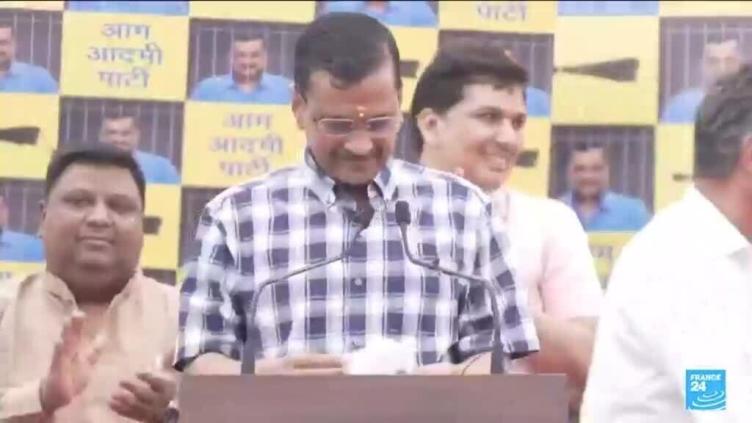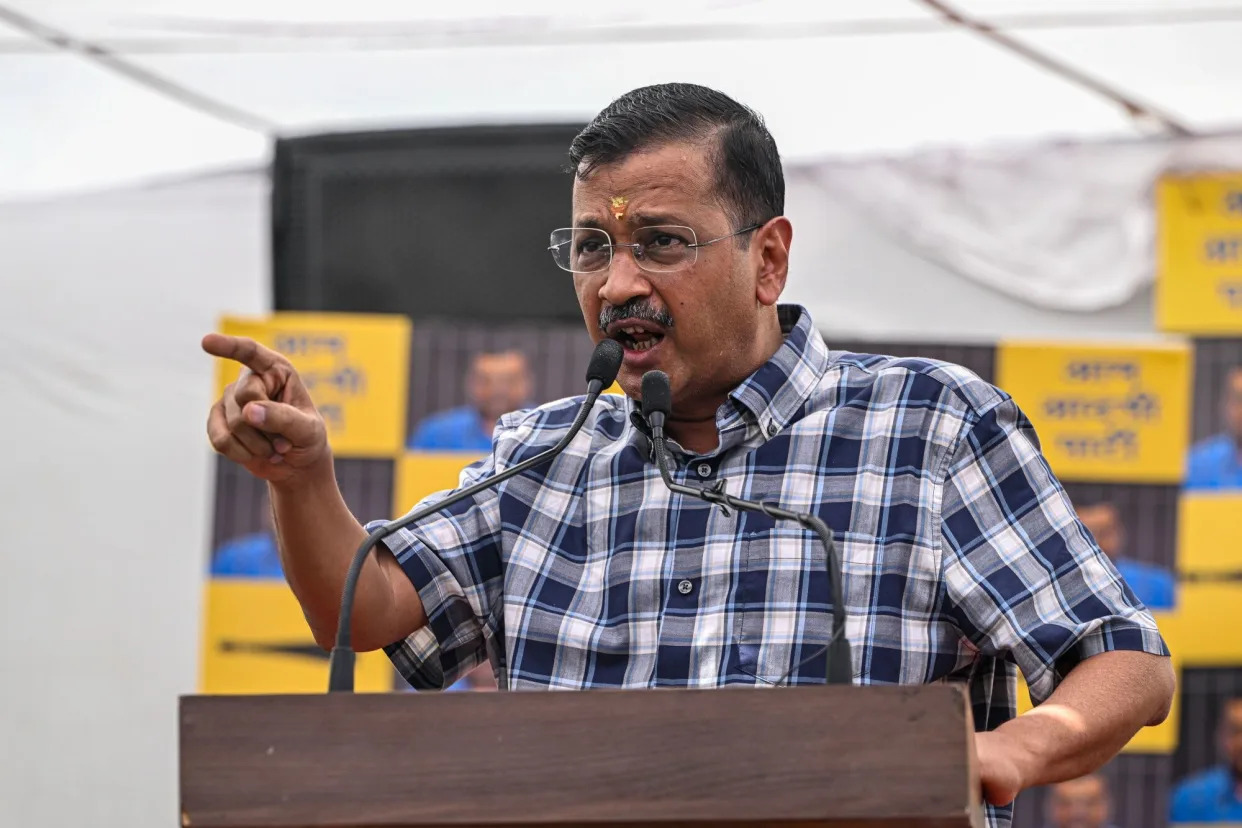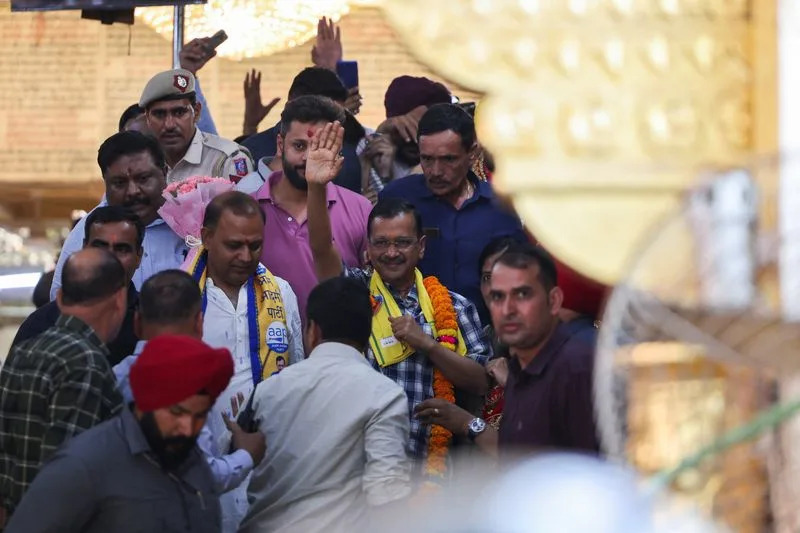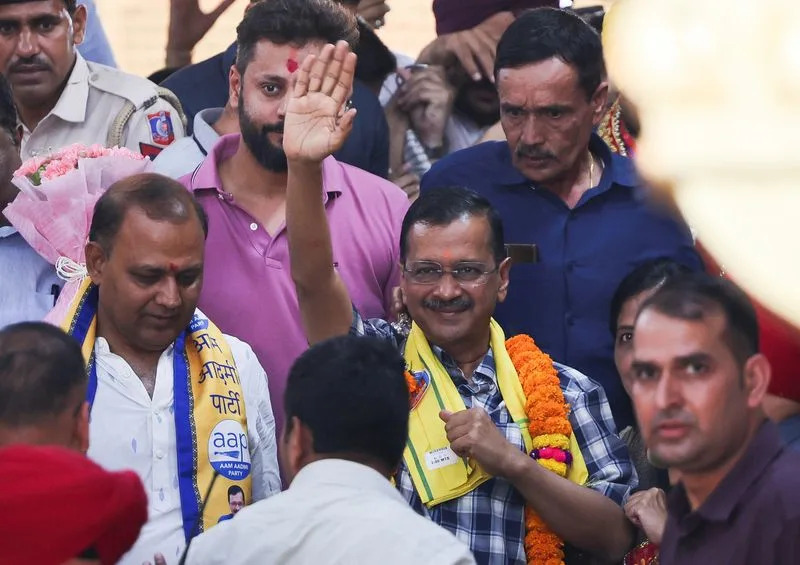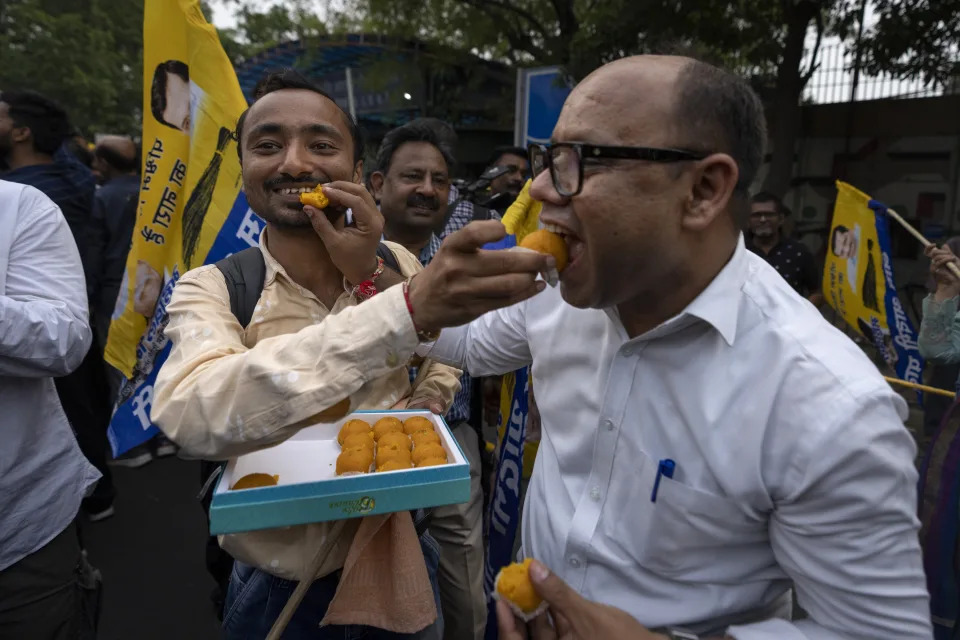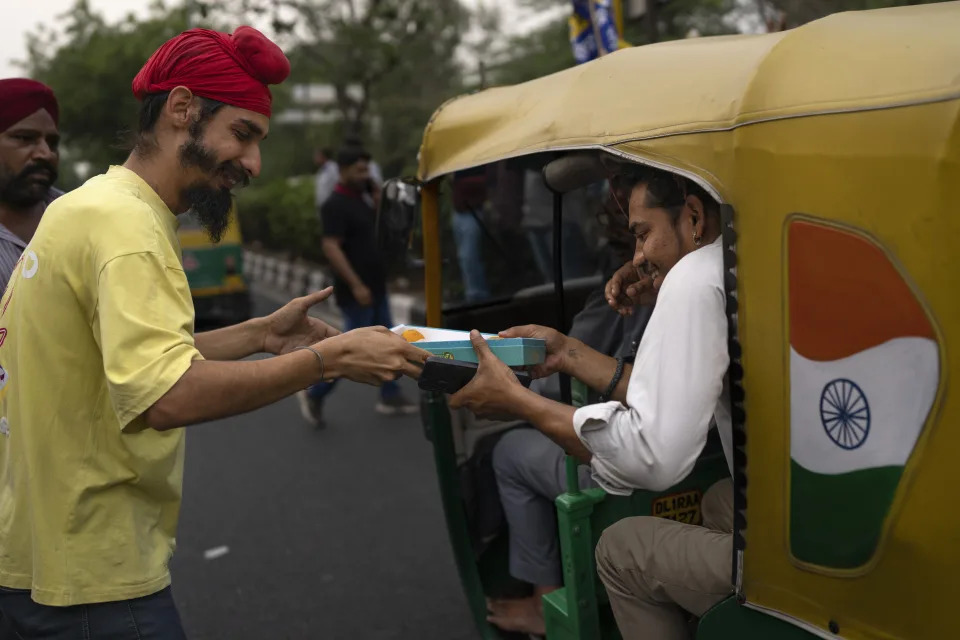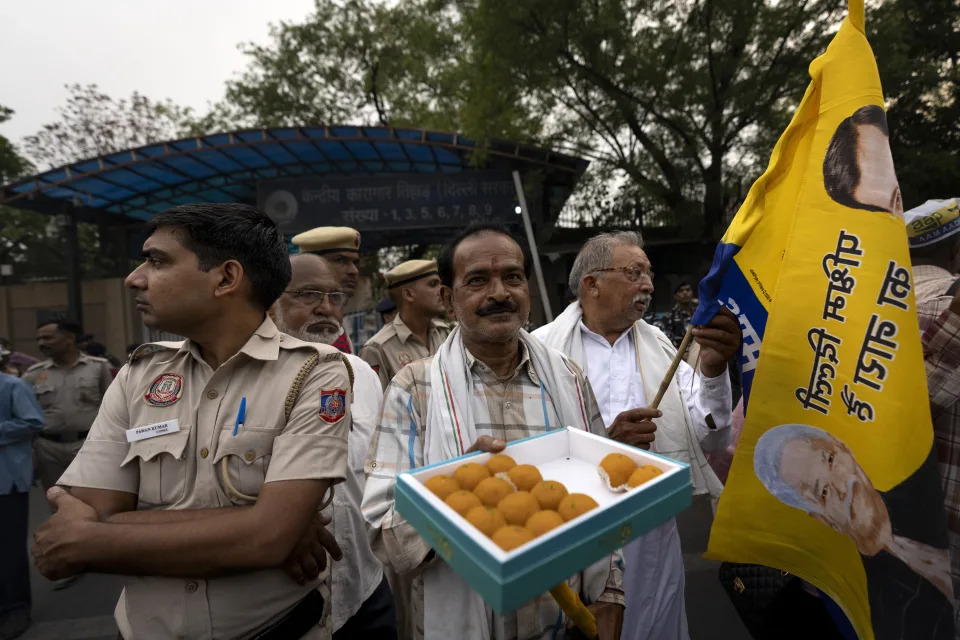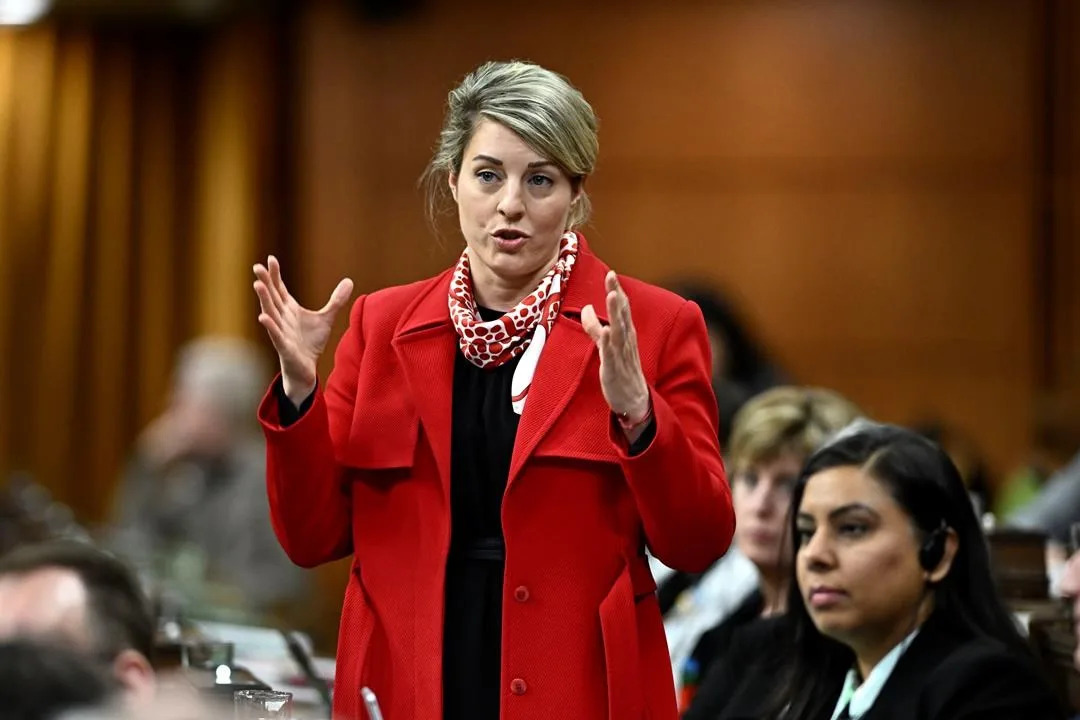Rosie Frost
Fri, May 10, 2024

Is it 'high time' for Europe to recognise the human right to a healthy environment?
Last month, Switzerland became the first country in the world to be sentenced by an international court over climate inaction.
The European Court of Human Rights (ECHR) backed a group of older Swiss women concerned about the impact of climate change on their health. It ruled that the government’s lack of action had violated their fundamental human rights.
The landmark ruling could have major implications for international environmental law, sparking numerous questions about the intersection between climate change and human rights.
The ECHR’s climate decision is a warning to governments the world over
Former UN rights chief says ECHR decision shows that safe climate is a human right
And, in the wake of the unprecedented verdict, calls to enshrine the right to a clean, healthy, sustainable environment in the European Convention on Human Rights have once again been rekindled.
What is the right to a healthy environment?
The verdict in the Swiss women’s case does set a precedent for future climate litigation but, because the European human rights system doesn’t recognise the right to a healthy environment, it didn’t specifically address this.
Human rights come with legally enforceable obligations for states and enshrining them within international law provides legal avenues for holding governments accountable if they don’t uphold them.

Swiss members of Senior Women for Climate gather after the European Court of Human Rights' ruling. - AP Photo/Jean-Francois Badias
“The right to a healthy environment is crucial to preventing and remediating the impacts of the escalating triple planetary crisis (climate change, biodiversity loss, and pervasive pollution) which affects the lives and rights of individuals and communities worldwide,” says Nikki Reisch, Director of the Climate and Energy Program at the Centre for International Environmental Law (CIEL).
It provides comprehensive protection against a range of environmental harms, she explains. That includes ensuring every individual has the right to clean air and water, a safe climate, healthy ecosystems, healthy and sustainably produced food as well as non-toxic living, working and learning environments.
In addition, it guarantees some other procedural elements like access to environmental education and justice with effective remedies as well as public participation in decision-making.
Crucially it also reinforces protection for environmental defenders whose human rights are often “trampled” during their work.
Where is the right to a healthy environment already recognised?
After the UN Human Rights Council’s recognition of the right to a clean, healthy, and sustainable environment in 2021, the UN General Assembly unanimously adopted a resolution in 2022 recognising that a safe and liveable environment is not just “sound policy” but a fundamental, universal human right.
Not every member state adopted this right into its domestic laws or constitution and the resolution is not legally binding.
The right to a healthy environment, however, is recognised in domestic law in 80 per cent of UN member states - 161 out of 193 nations. The UK and Russia are among some notable exceptions.
‘Historic’ European Court of Human Rights ruling backs Swiss women in climate change case
What does the ECHR’s landmark ruling mean for human rights and climate change?
“The implementation of the right to a clean, healthy, and sustainable environment has prompted stronger environmental legislation, enhanced public involvement in governance, greater transparency, and equitable access to justice,” says Reisch.
“These advancements have fostered better environmental outcomes, including cleaner air, safer drinking water, and reduced emissions.”
The Council of Europe remains the only regional human rights system that has not yet explicitly recognised the right to a healthy environment.
Outside of individual countries, internationally there are three regional systems for the protection of human rights: the African, the Inter-American and the European systems.
“The Council of Europe remains the only regional human rights system that has not yet explicitly recognised the right to a healthy environment,” Reisch explains.
Will the Council of Europe recognise the right to a healthy environment?
The Council of Europe has been facing demands to recognise the right to a healthy environment for more than 50 years.
Just this month, more than 400 civil society organisations from Amnesty International to Greenpeace, CIEL and Human Rights Watch came together to call for the right to a healthy environment to be put into law.
“The scale of the harms for people living in Europe, and the importance of coming to a unified approach in interpreting and implementing the right to a clean, healthy, and sustainable environment makes it imperative for the Council of Europe to urgently take decisive steps toward the adoption of a binding legal framework that recognises and protects the right to a clean, healthy, and sustainable environment,” they wrote in a letter to member states’ Ministers of Foreign Affairs and Permanent Representatives.
All Council of Europe states also voted in favour of the UN resolution recognising this right in 2022.
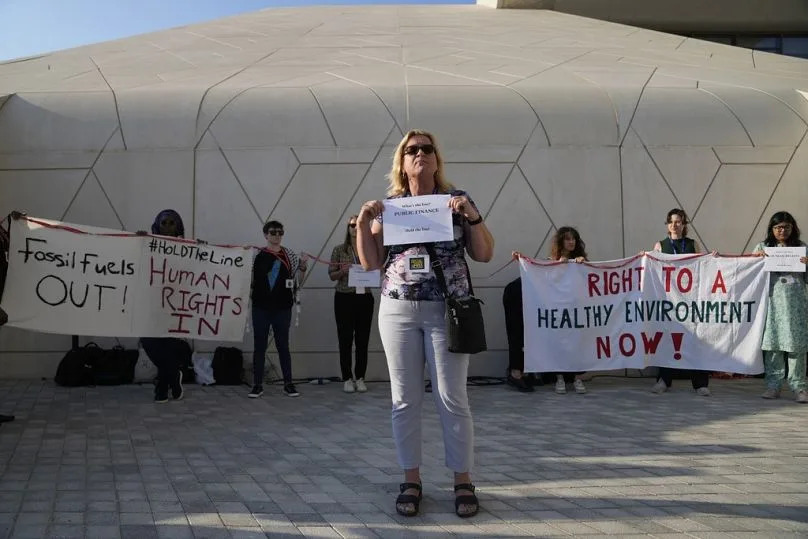
Activists protest against the use of fossil fuels and climate justice at COP28 in December. - AP Photo/Kamran Jebreili
A turning point came at the Reykjavik Summit of the Council of Europe in 2023. All member states present emphasised the need to strengthen their work on “human rights aspects of the environment based on the political recognition of the right to a clean, healthy, and sustainable environment as a human right”.
Progress is now being made but, as former UN Special Rapporteur on Human Rights David Boyd noted, “it will take a unified effort from civil society and other actors to push the European States to adopt a new protocol recognising the right to a healthy environment.”
Action is overdue and the only obstacle is a lack of political will.
42 of the Council’s 46 member states already protect the right to a healthy environment through their national constitutions, legislation or as signatories to the Aarhus Convention. This international agreement guarantees the public three key rights on environmental issues: access to information, public participation and access to justice.
Reisch argues that recent significant climate cases show it is “high time” for the Council of Europe to “catch up” with other regional human rights institutions by putting the right to a healthy environment in law.
“Action is overdue and the only obstacle is a lack of political will,” she adds.
What would the right to a healthy environment mean for climate cases?
“Guaranteeing effective protection of the right to a healthy environment is critical to driving more rigorous environmental policies, more ambitious climate action, and more consistent legal enforcement across the continent,” Reisch explains.
Instilling this right could also help with future climate litigation. It has formed the basis for an increasingly large number of cases, particularly in Latin America and has also been used effectively in domestic and regional courts in Africa.
More than 30% of world’s electricity now comes from renewables, report reveals
Fossil fuels generated less than a quarter of the EU's electricity in April
“The historic recognition of this right by the UN General Assembly and UN Human Rights Council is already informing legal precedents and advancing accountability around the globe.”
Several international courts are now being asked to address questions about a state’s international obligations in the face of the climate emergency - including the legal consequences of failing to fulfil these obligations. The right to a healthy environment is helping to answer those questions.
Beyond that, Reisch says more effective protection of the right and enforcement of corresponding obligations could help avoid the need for litigation in the first place.








